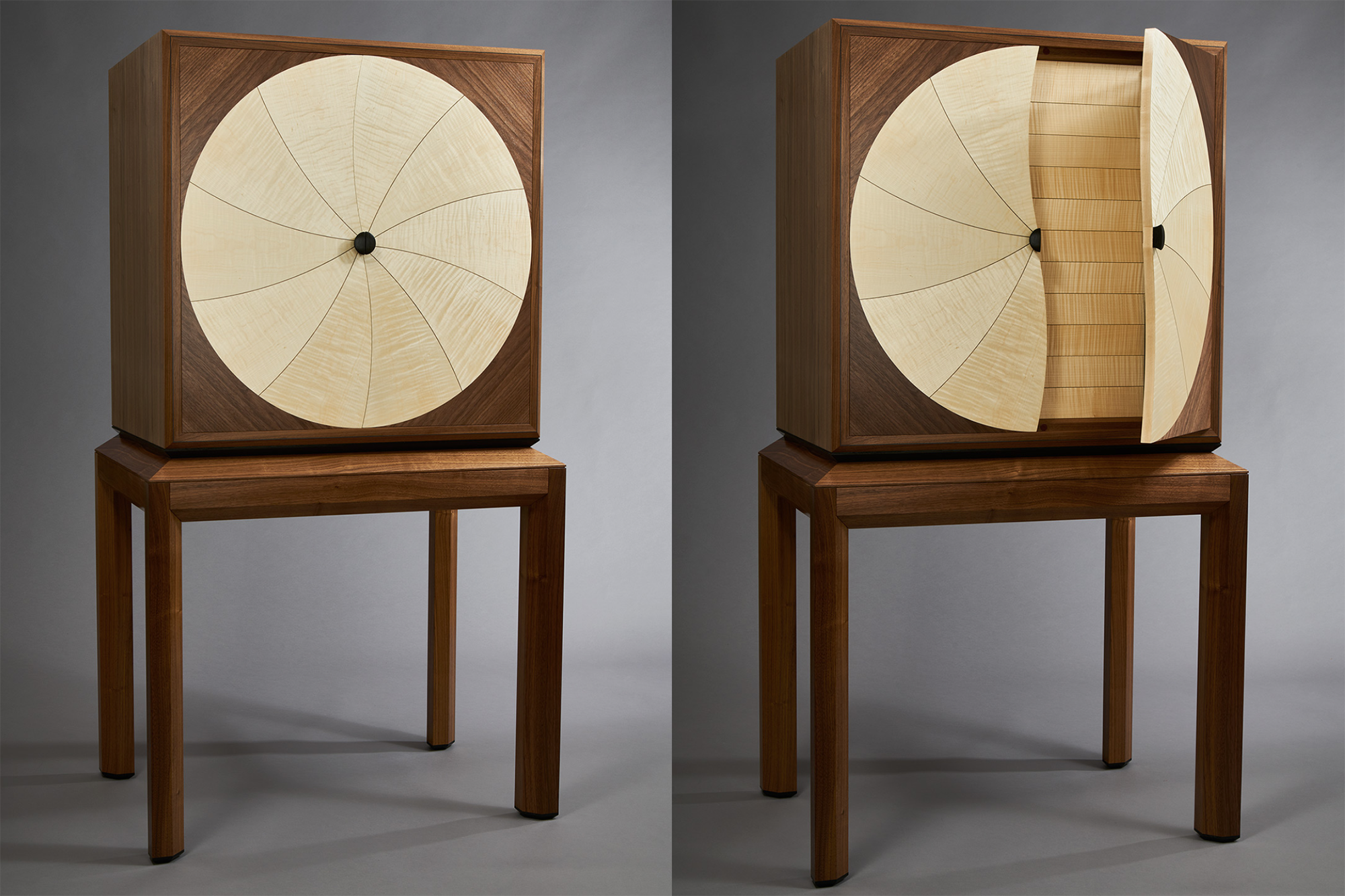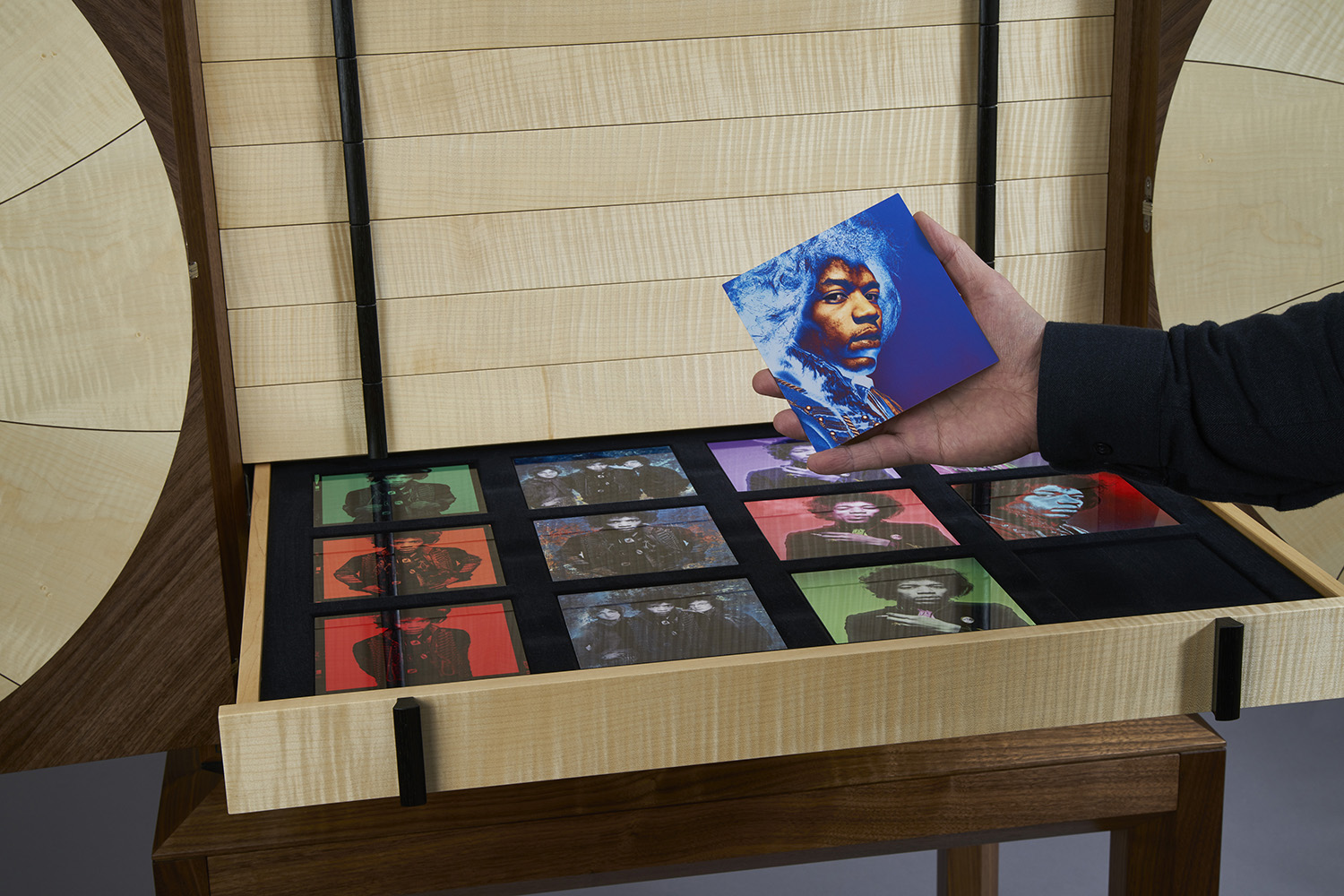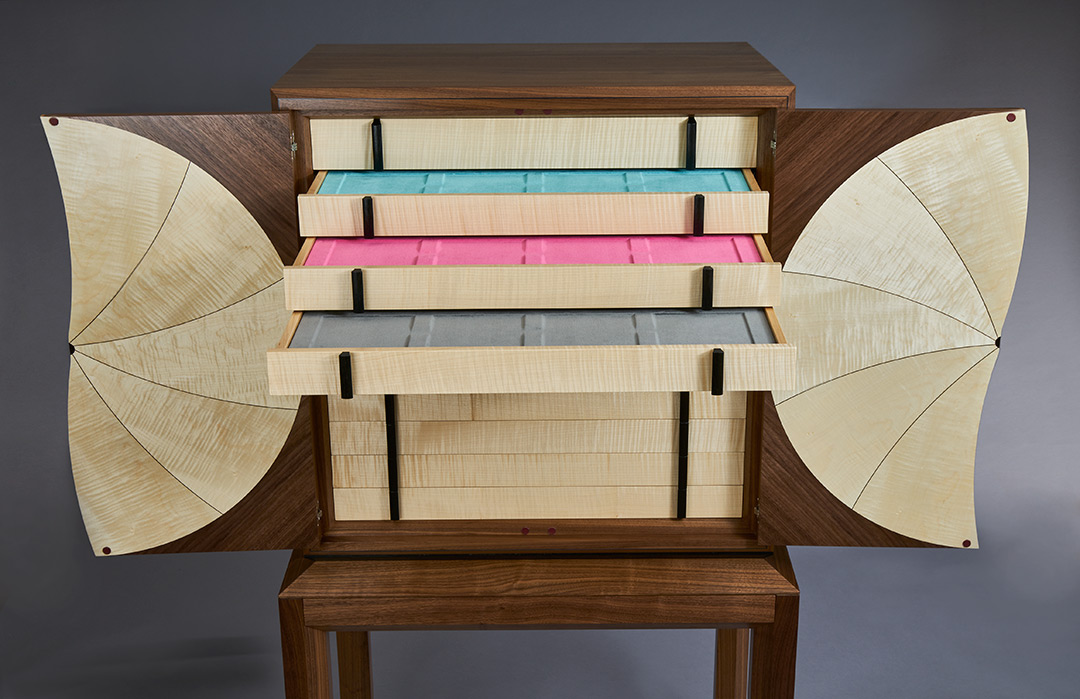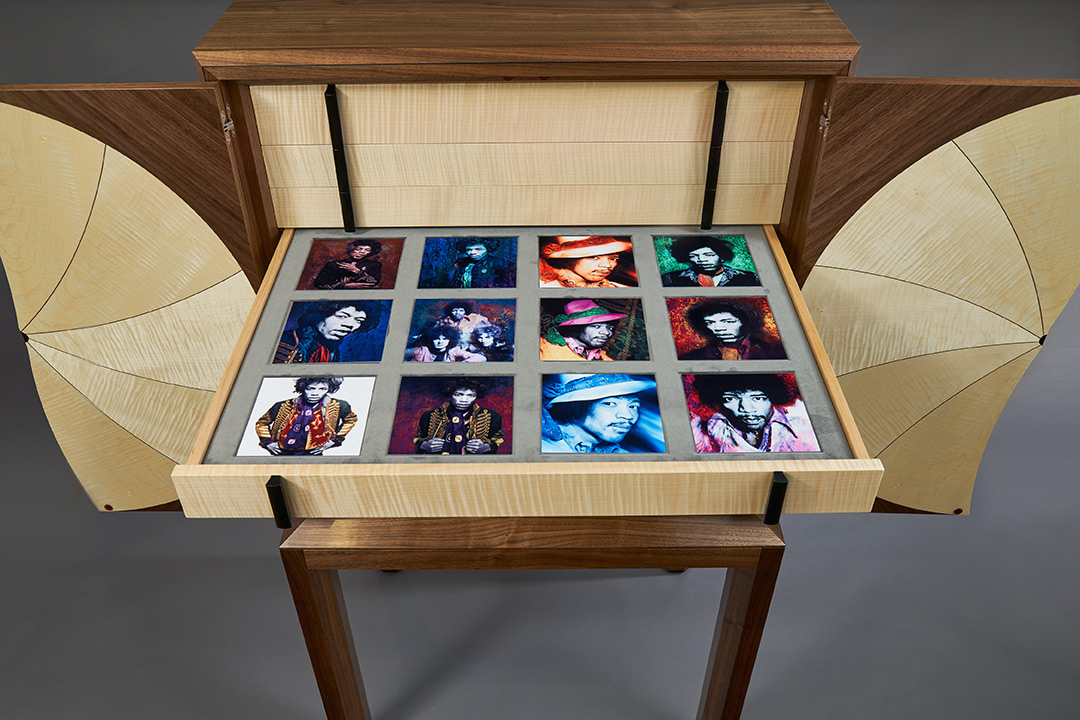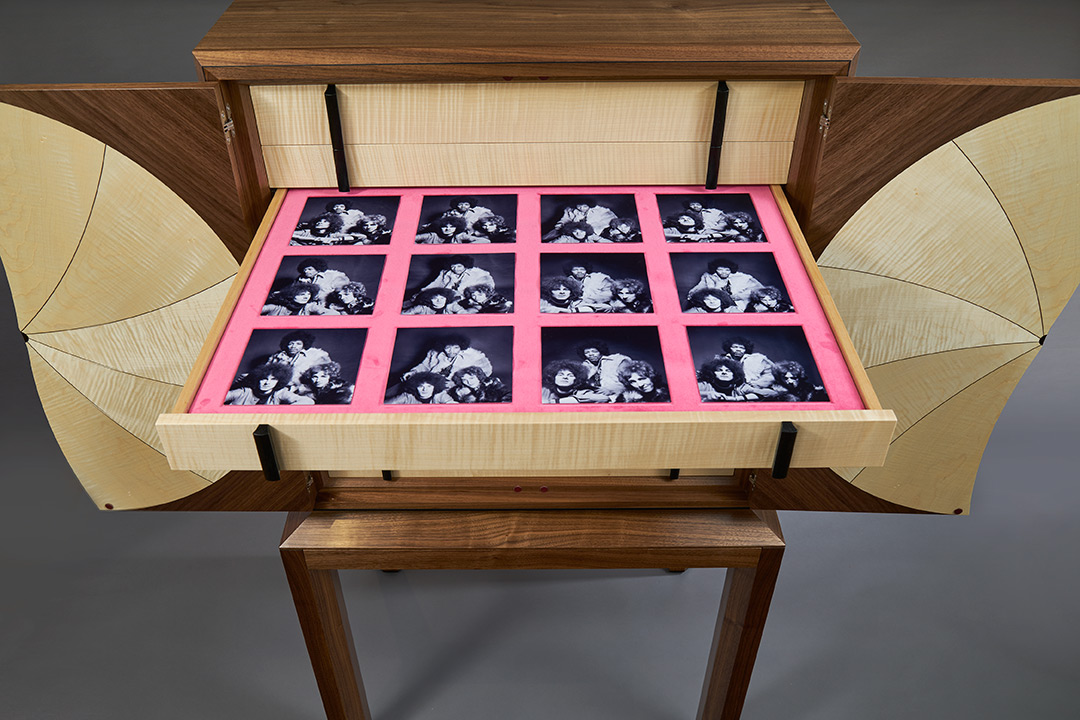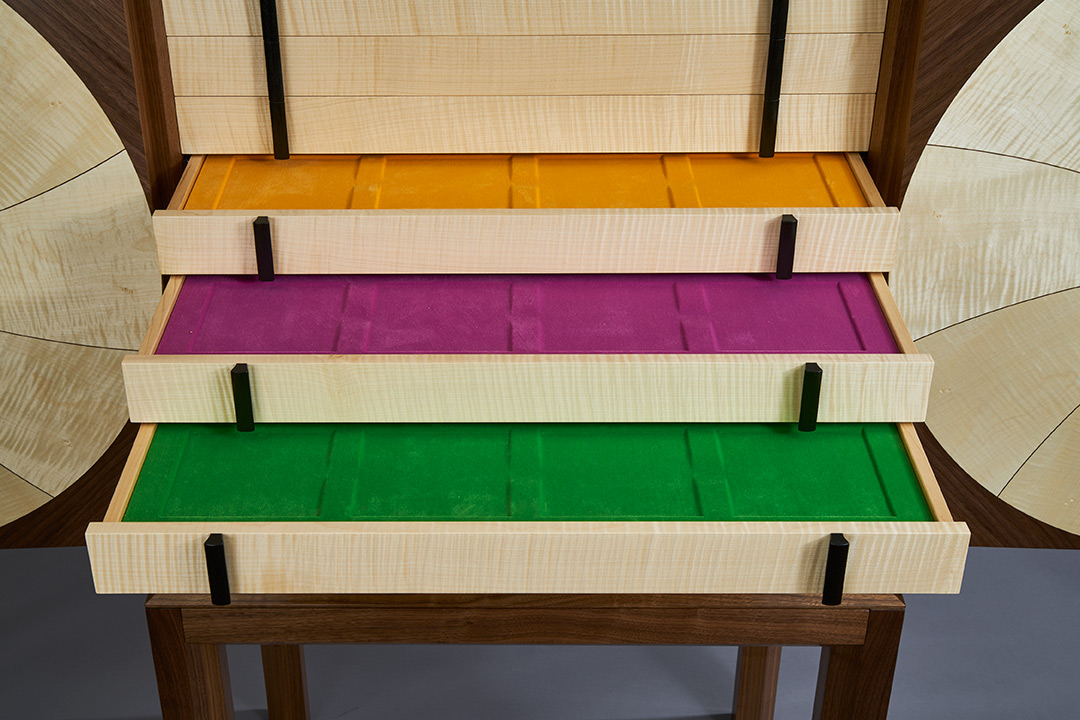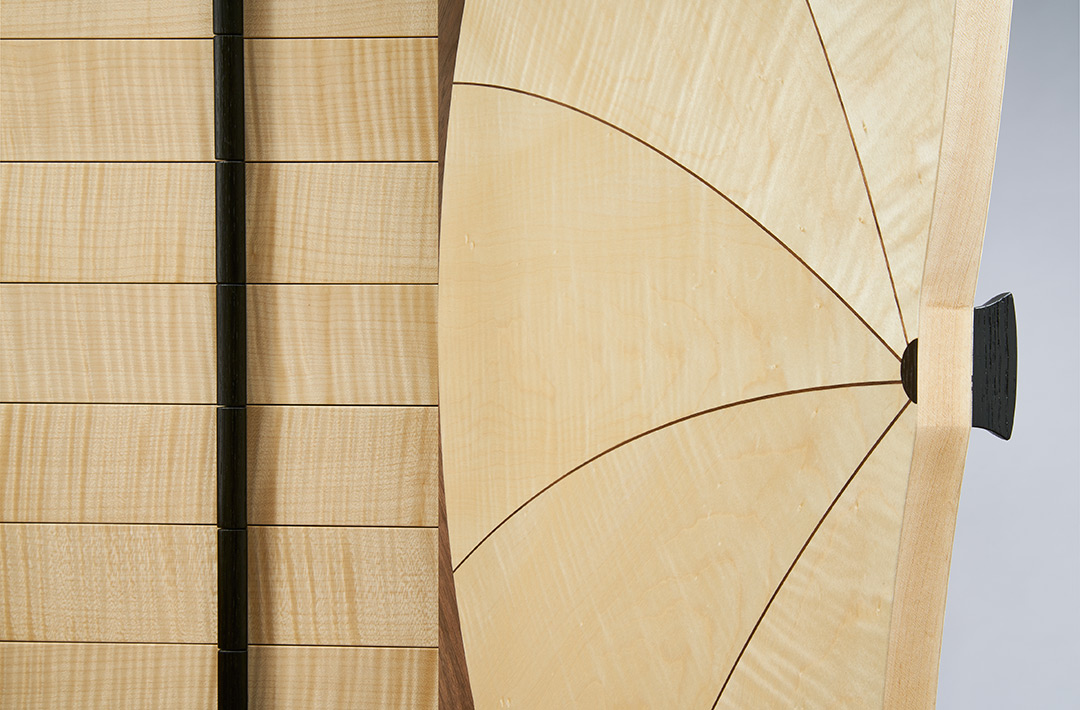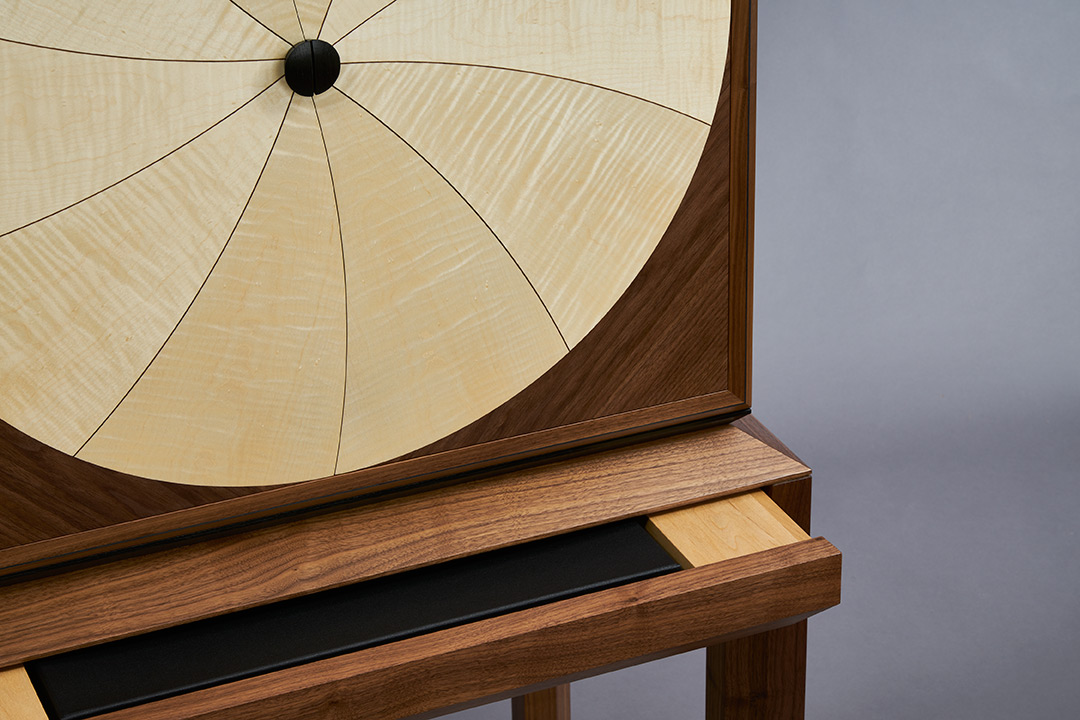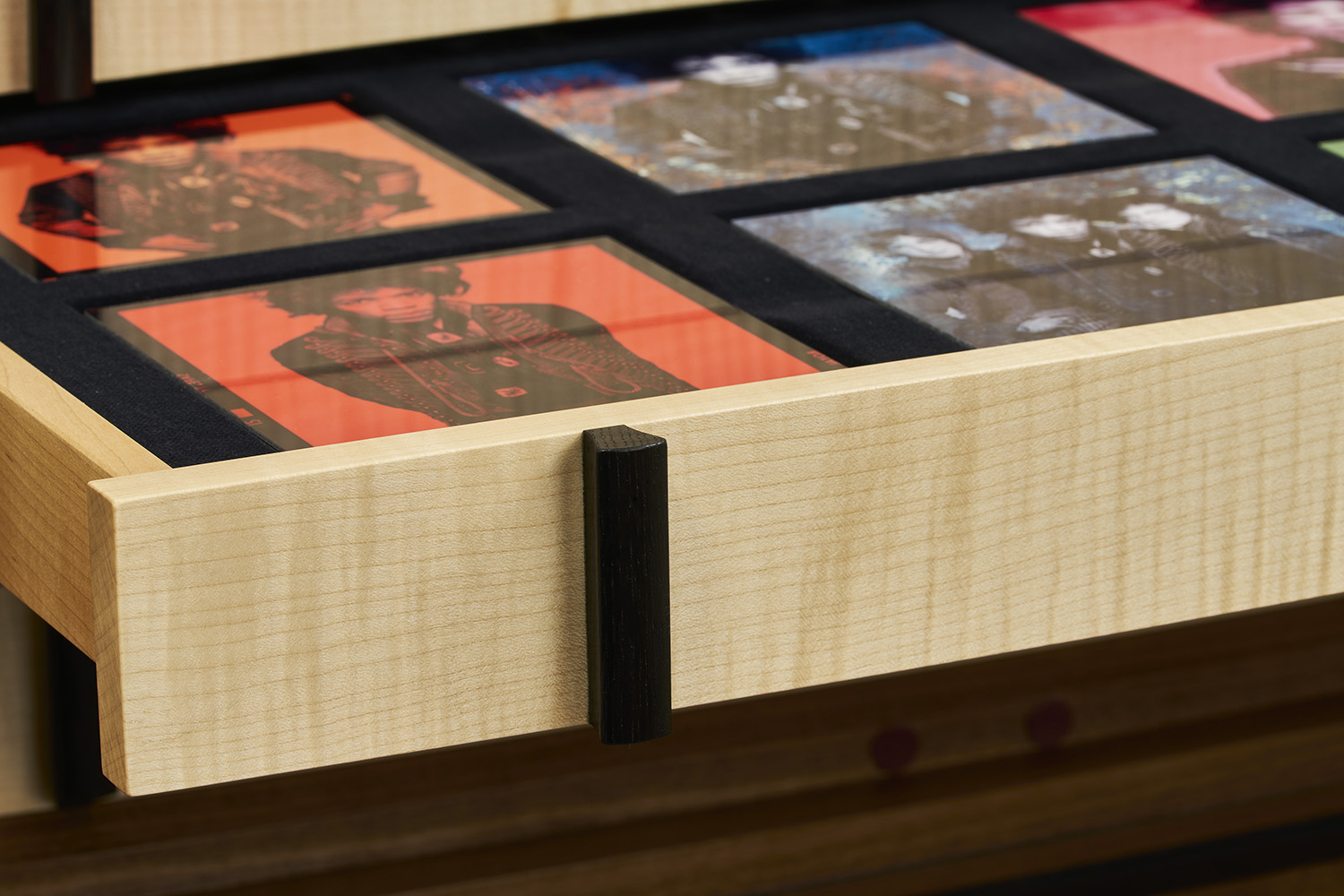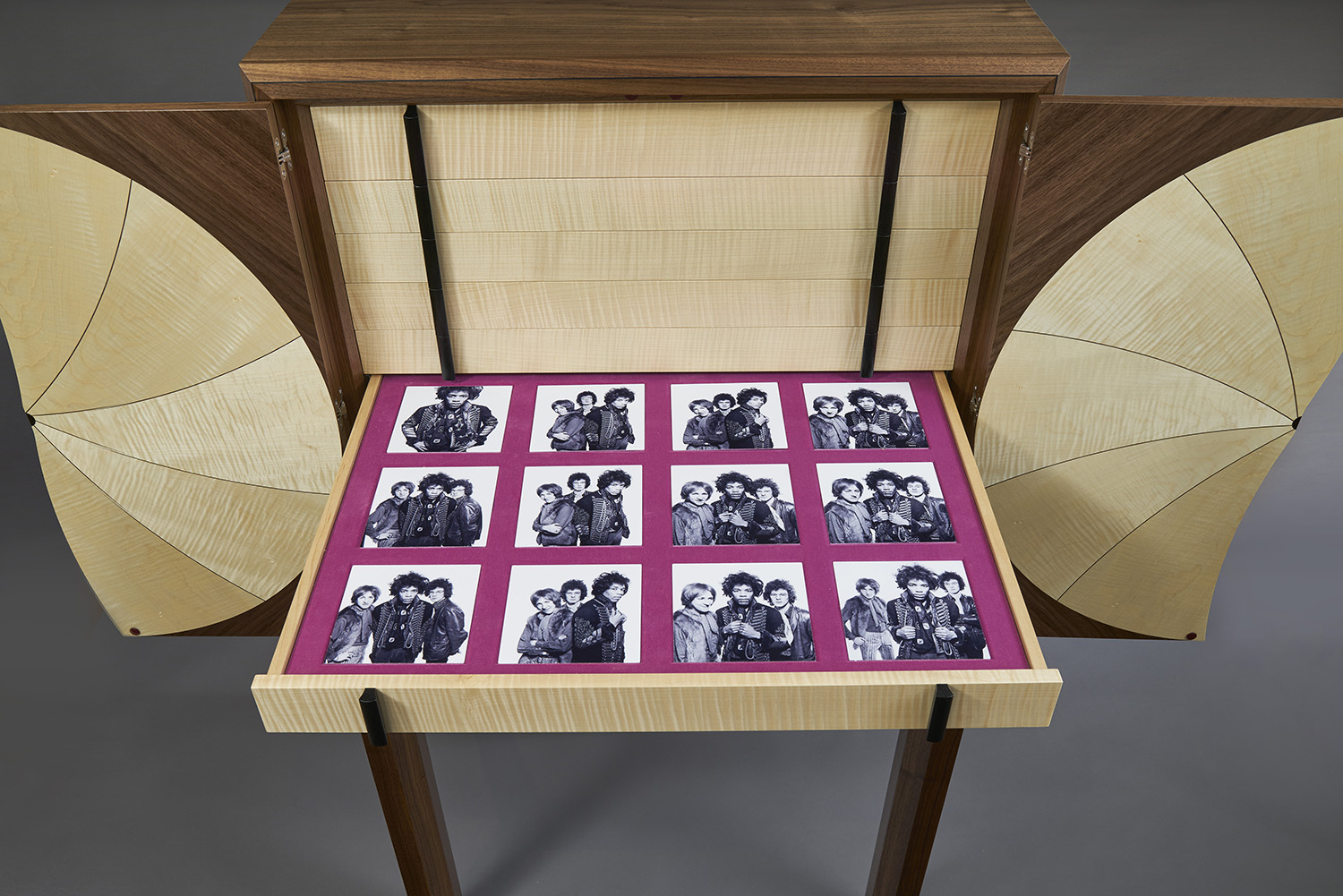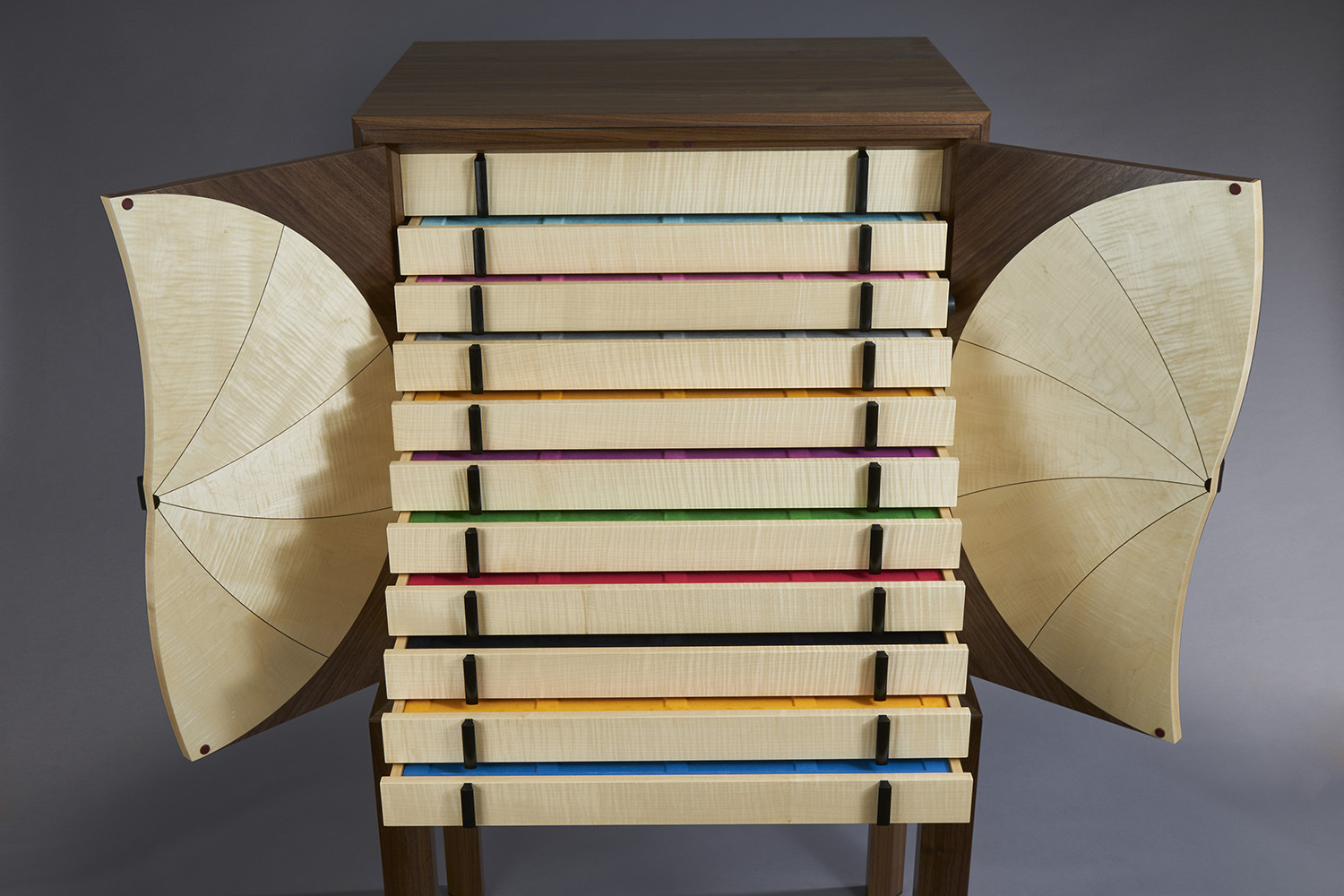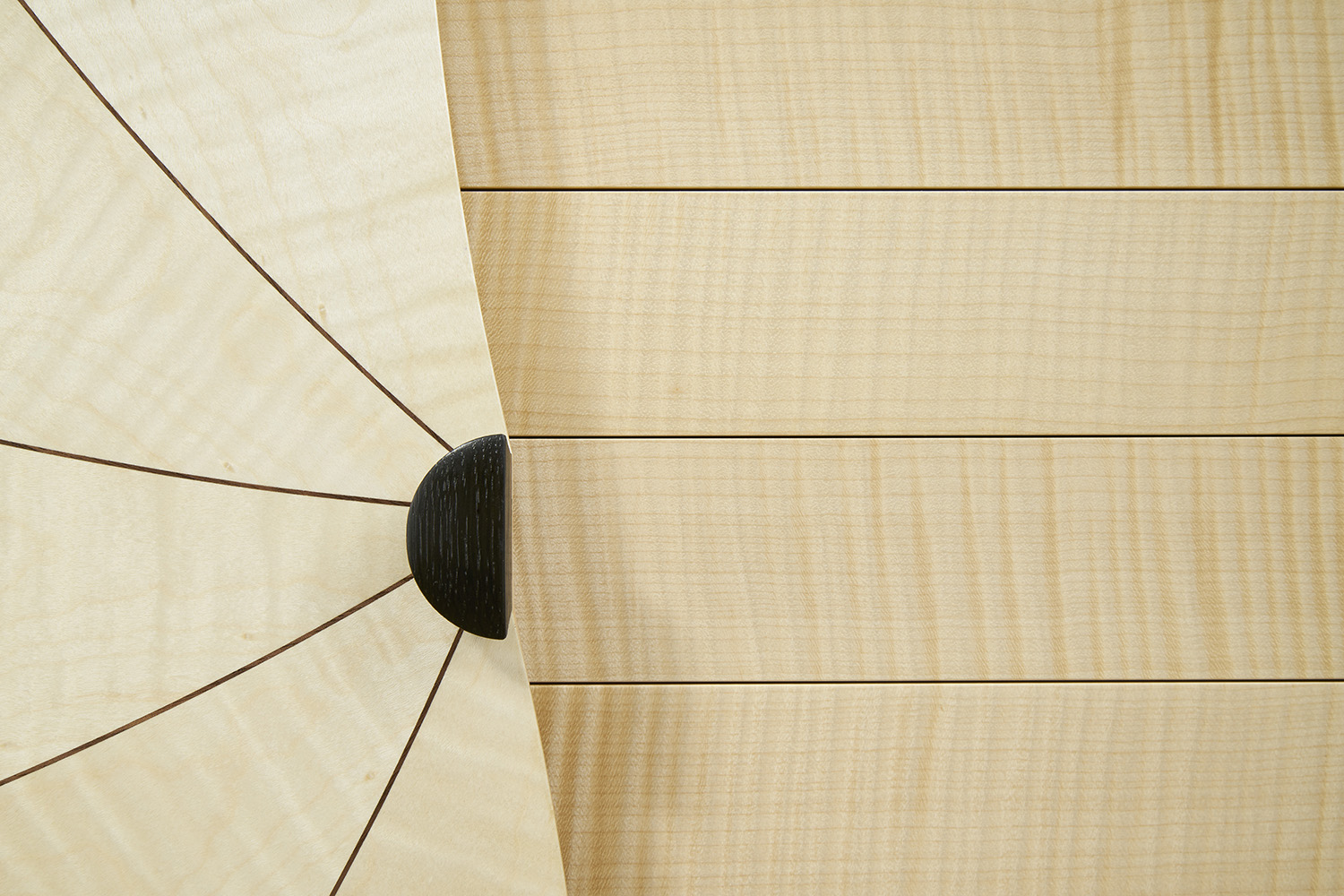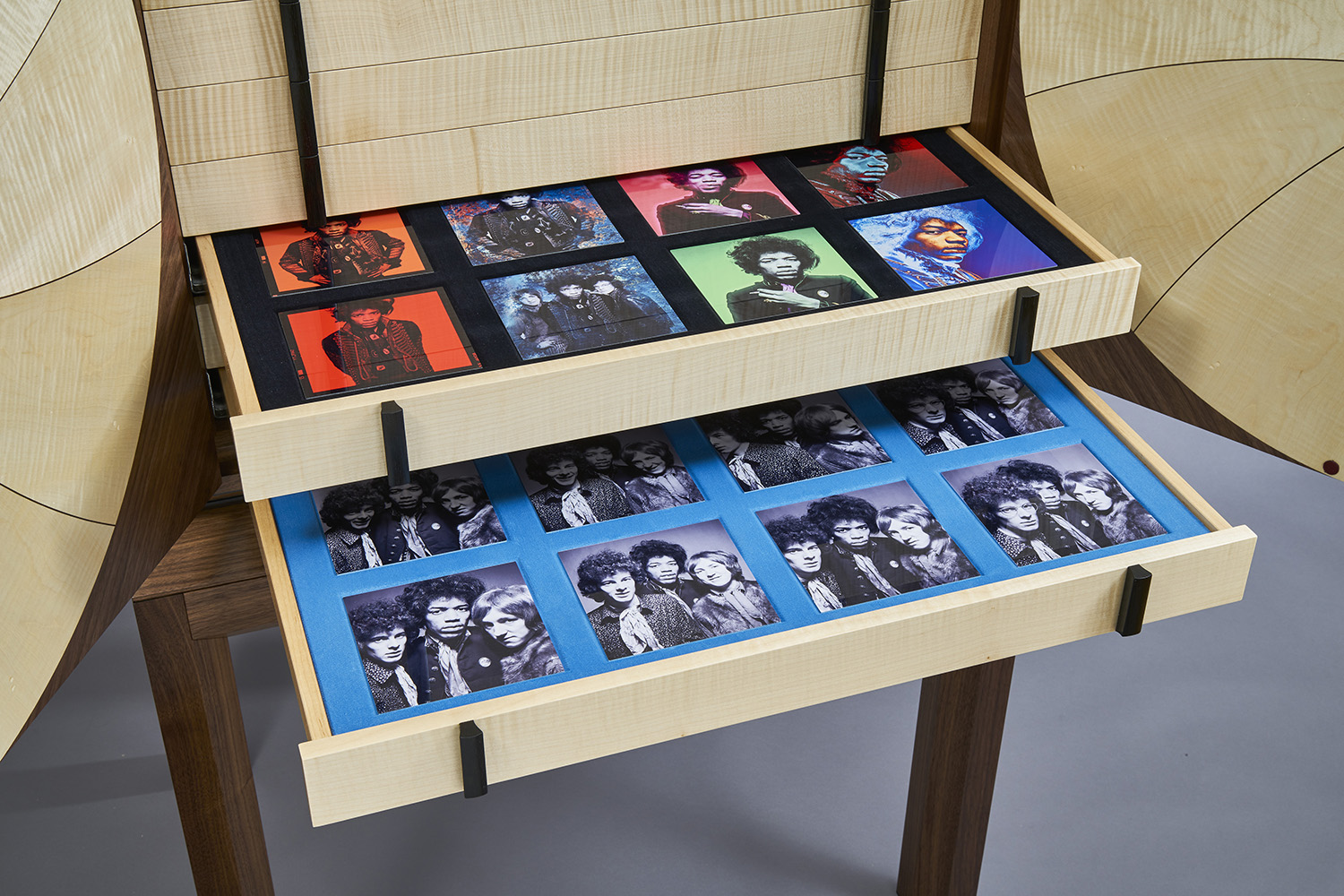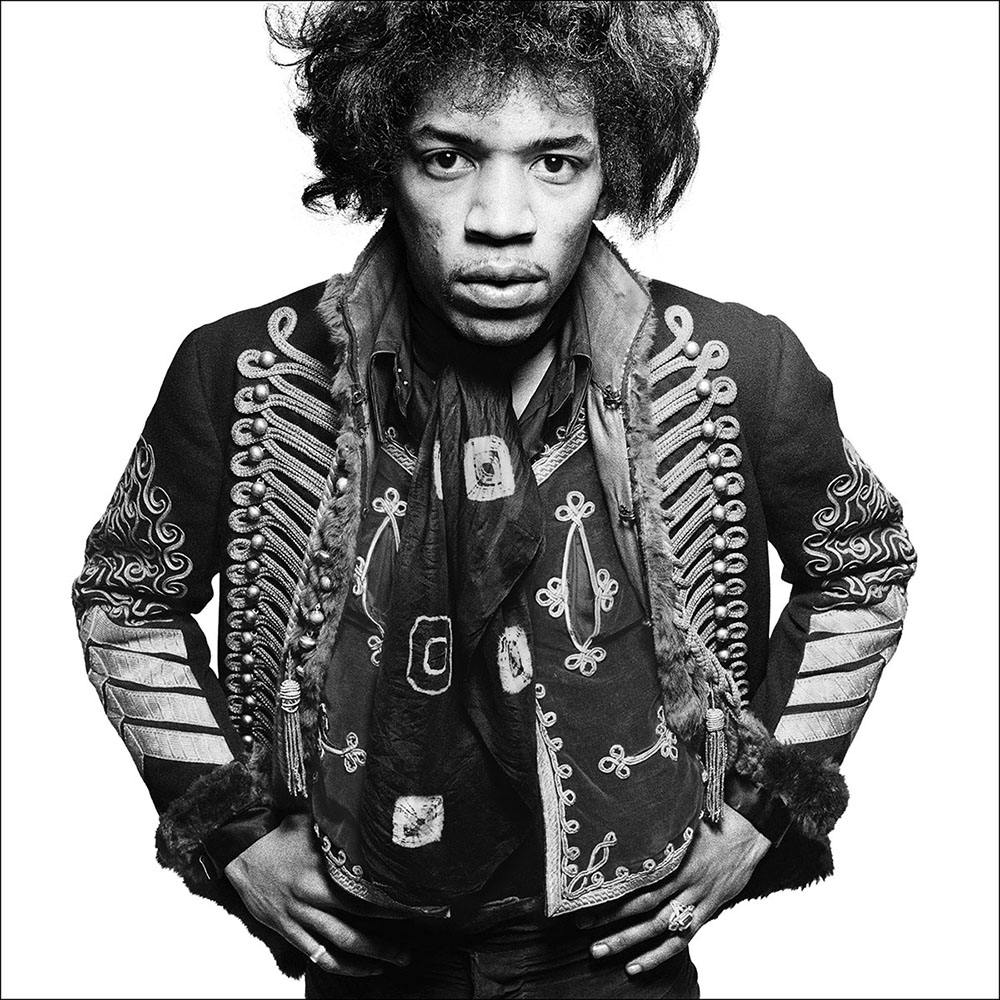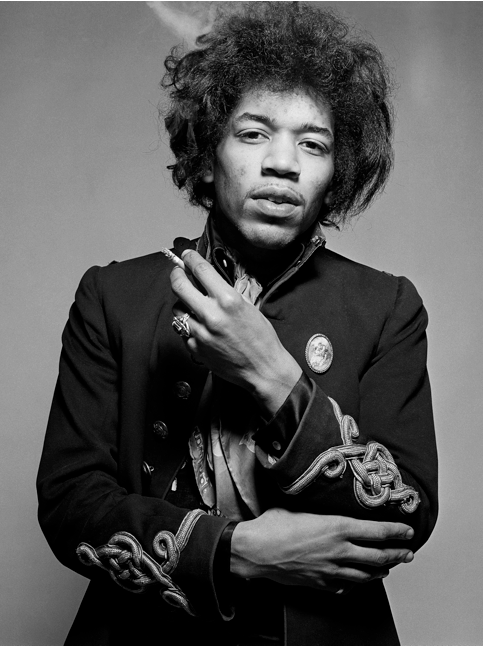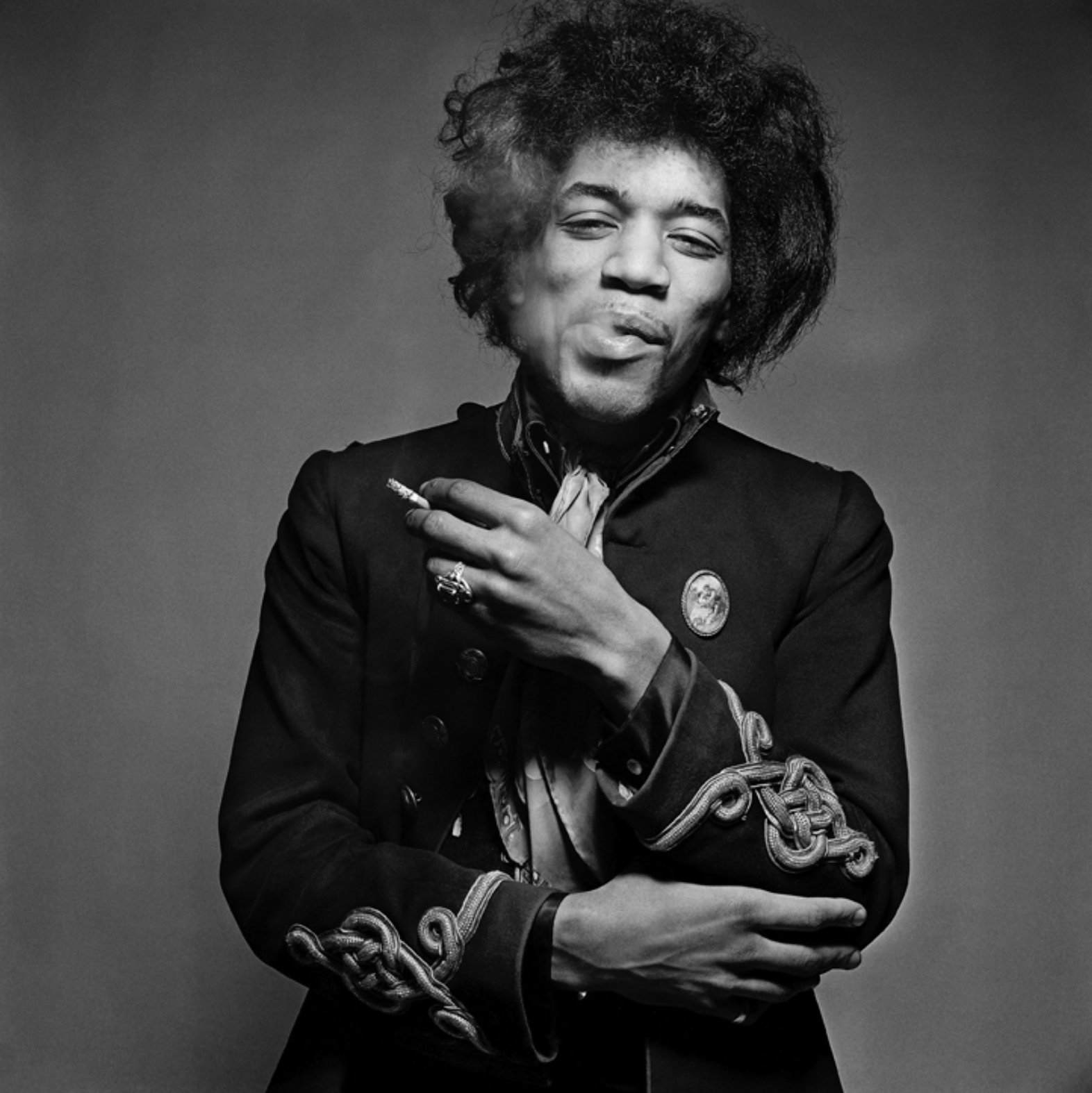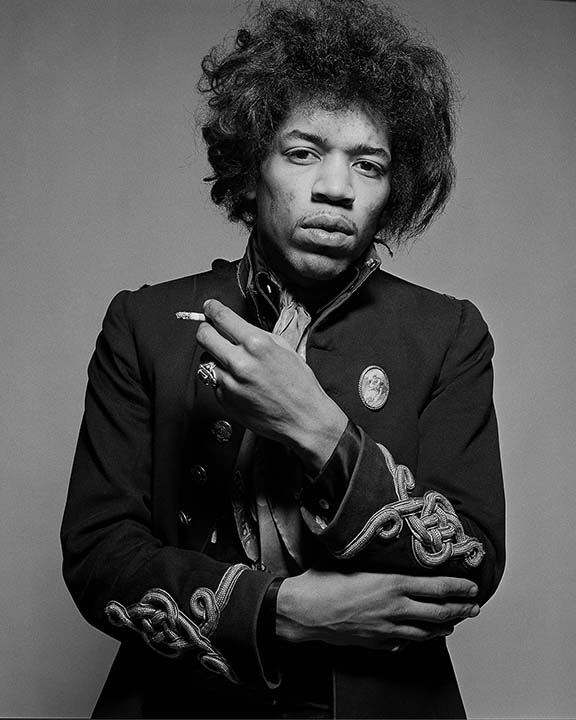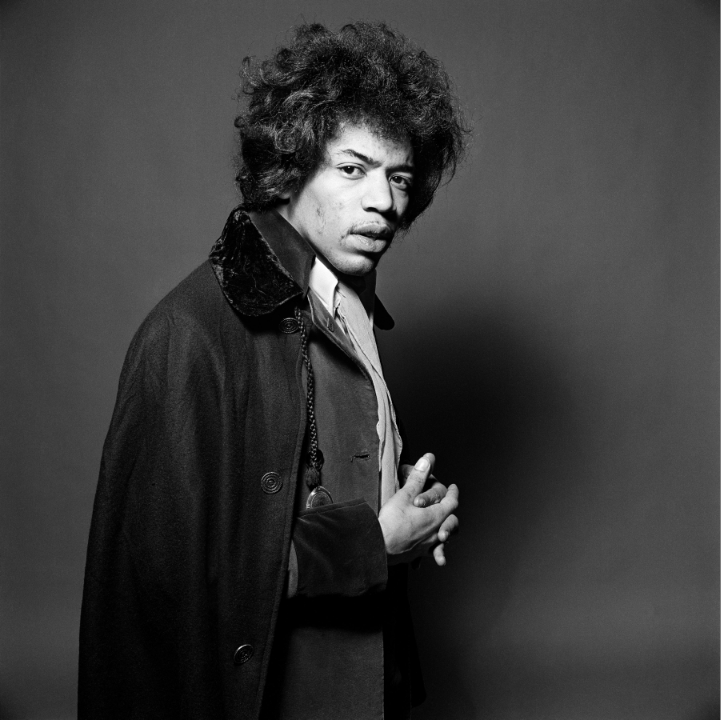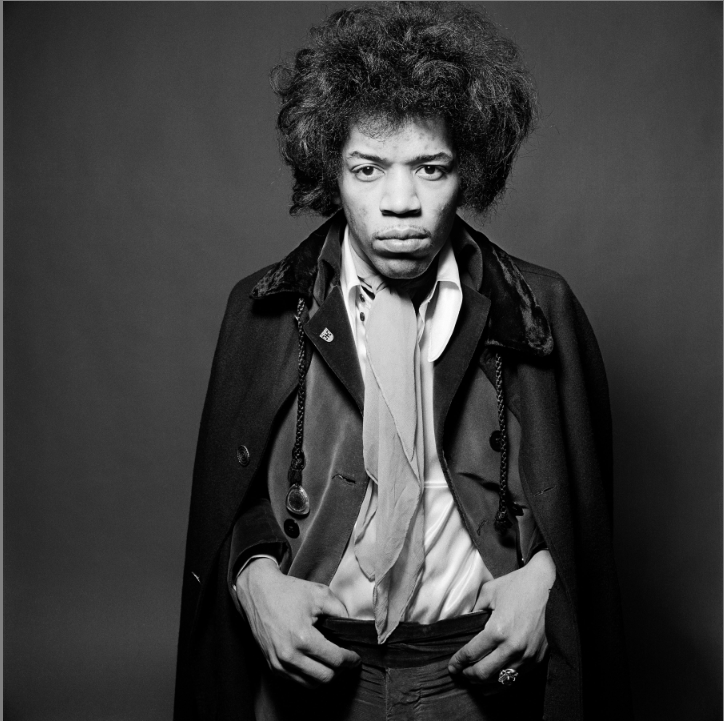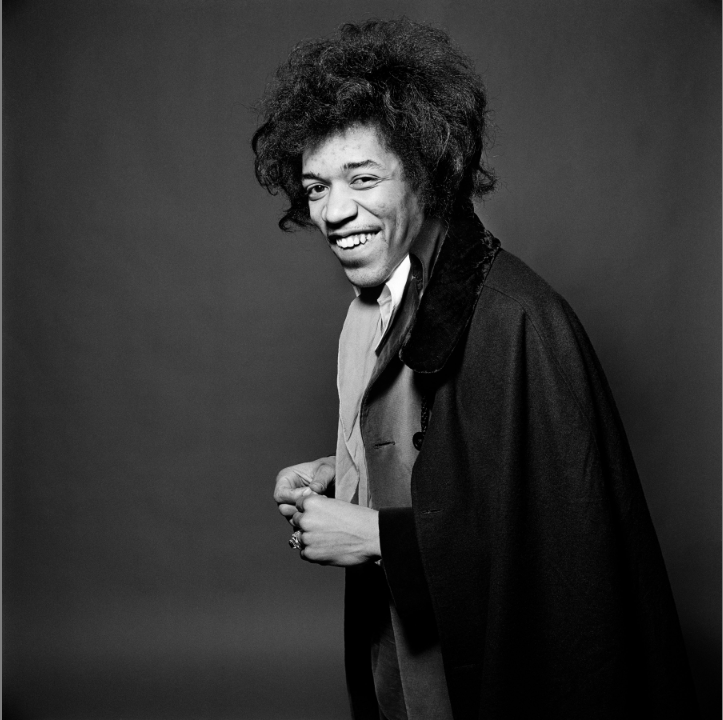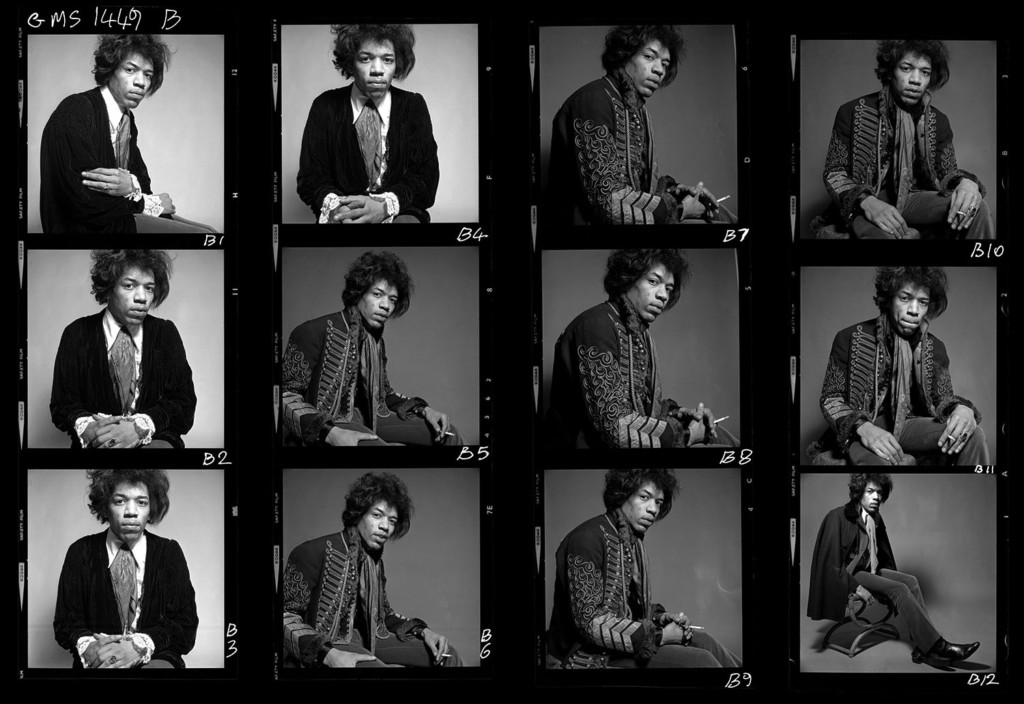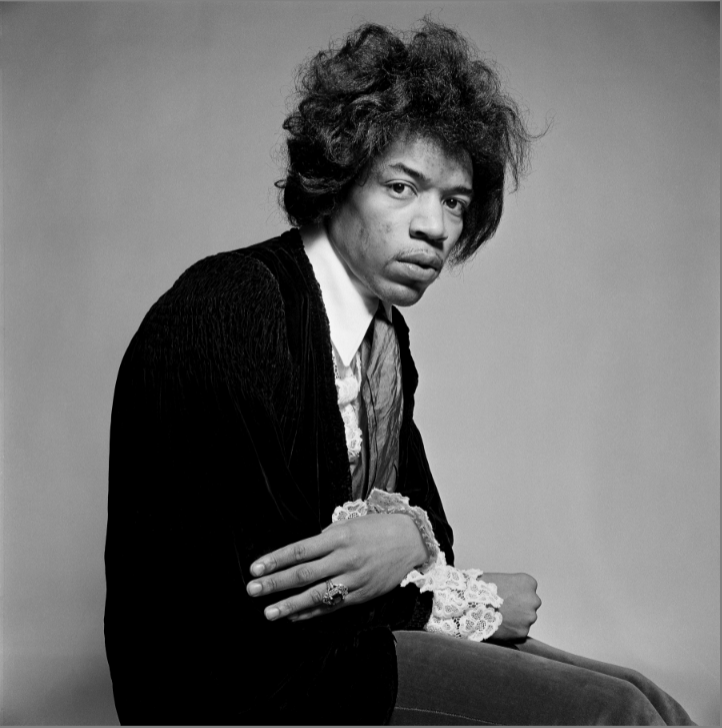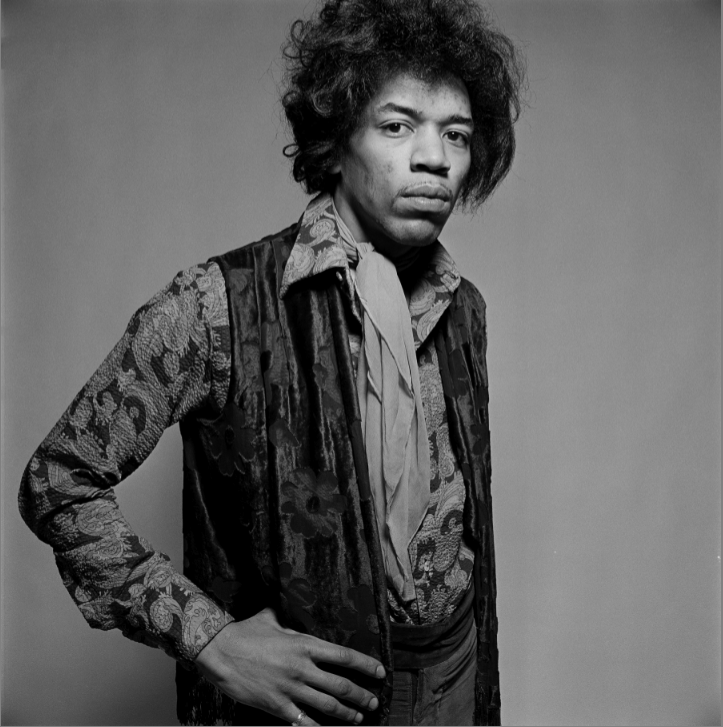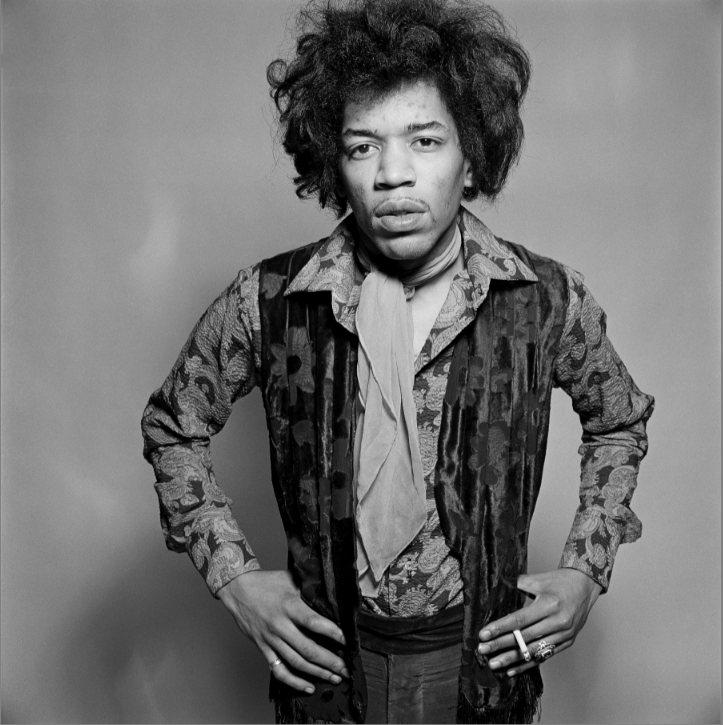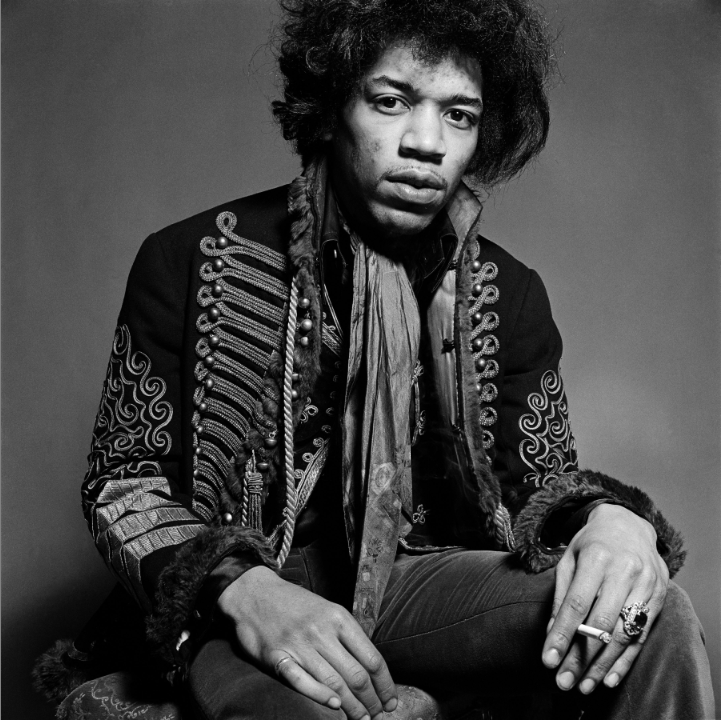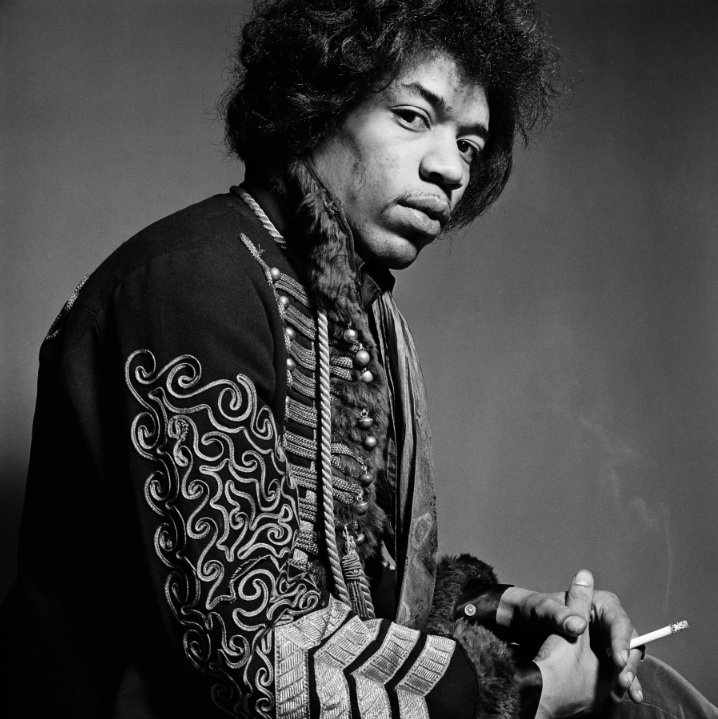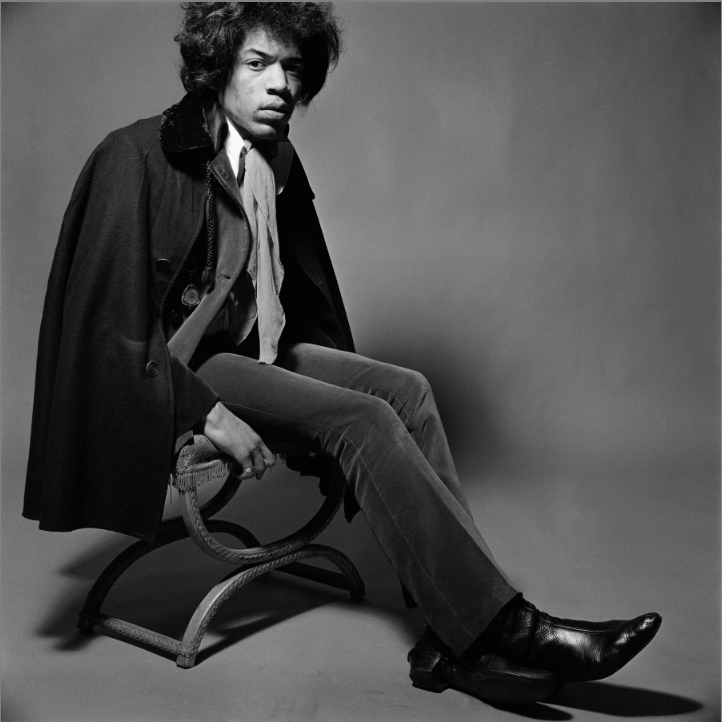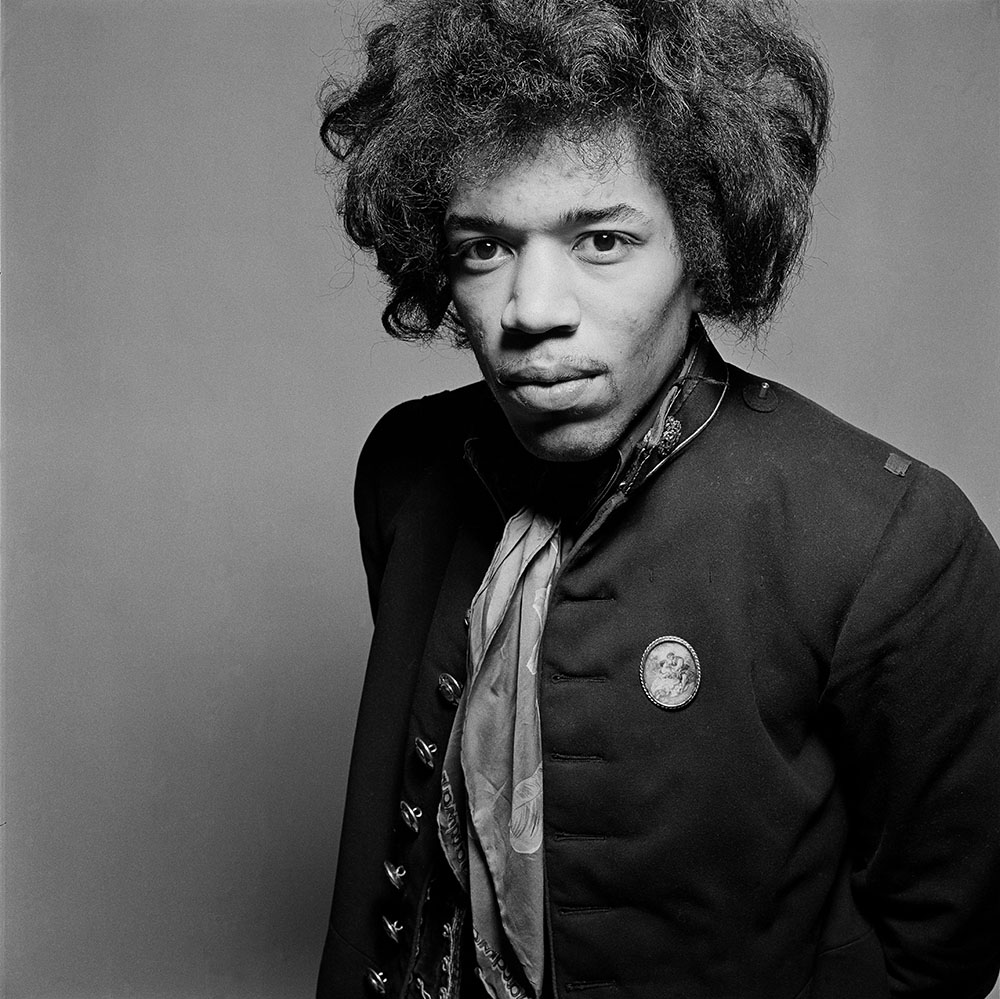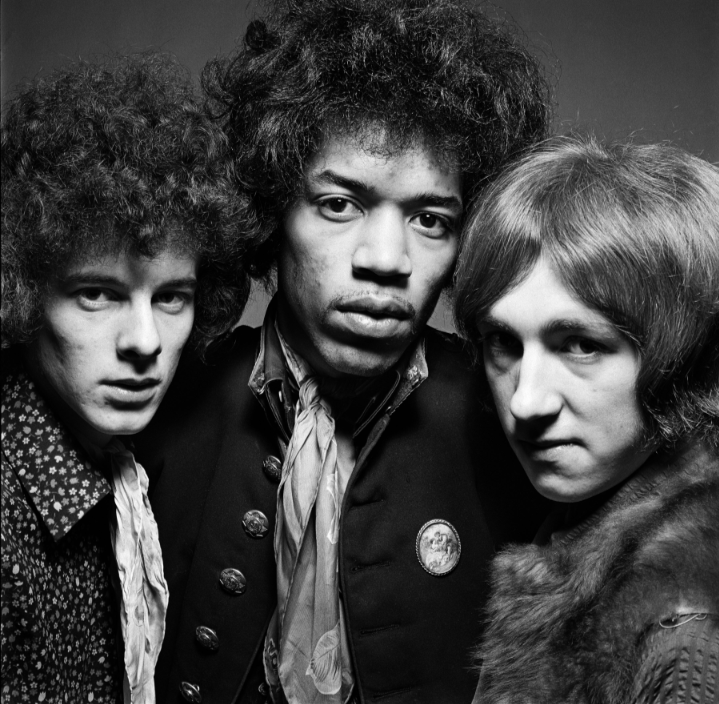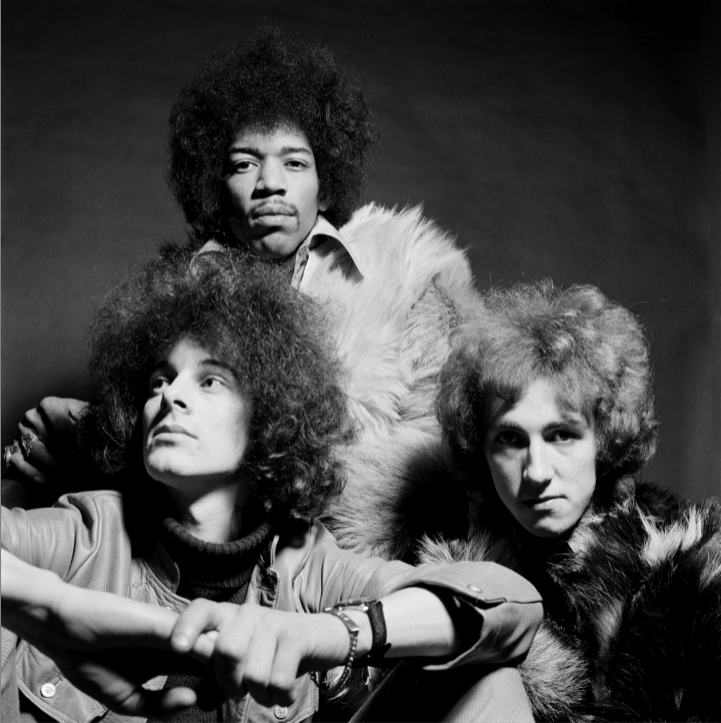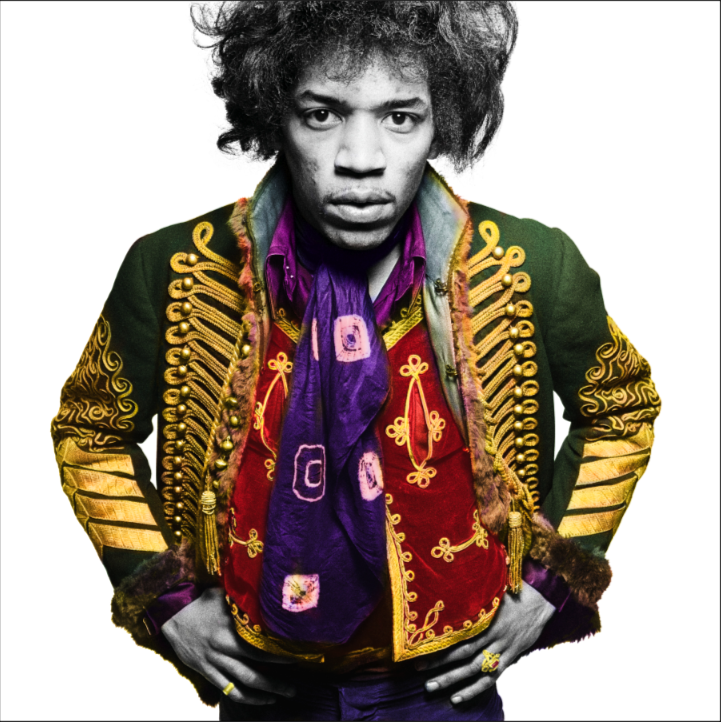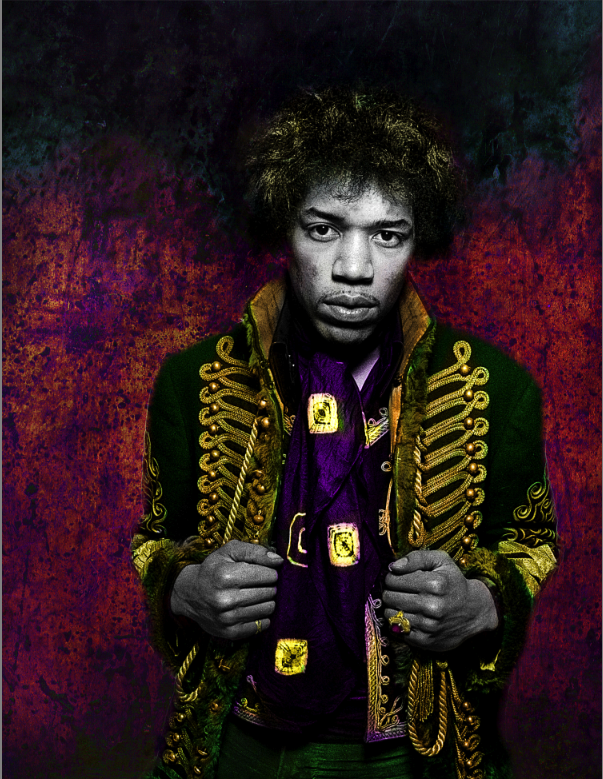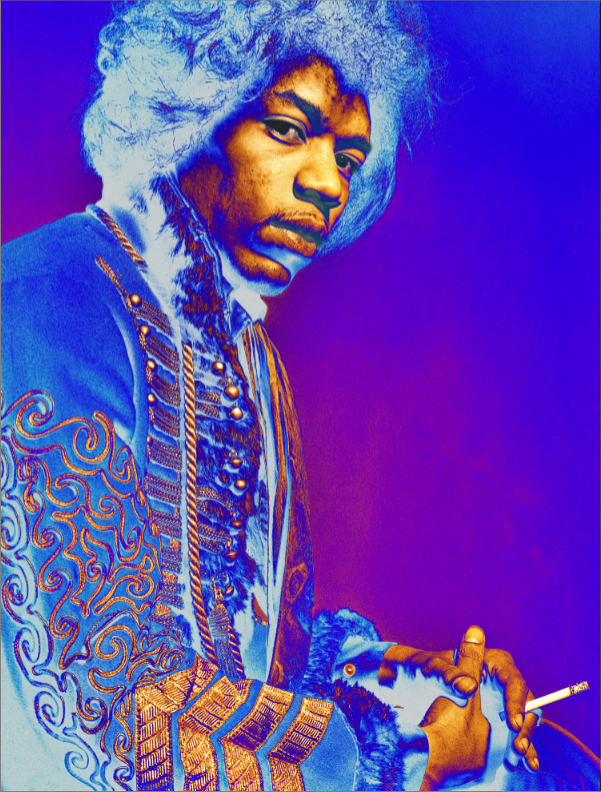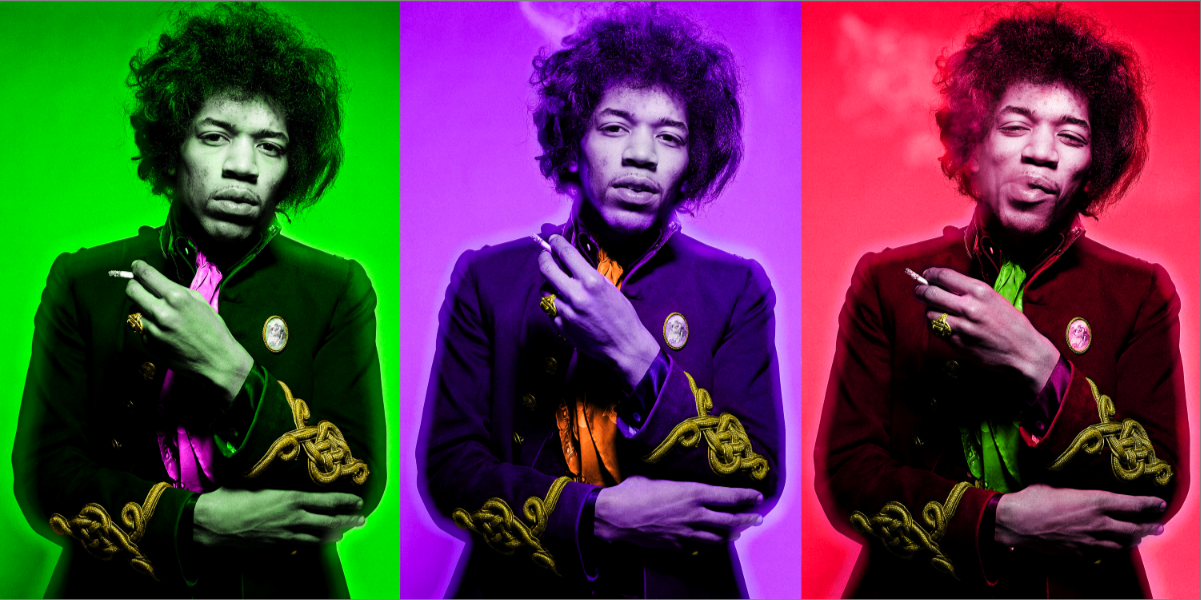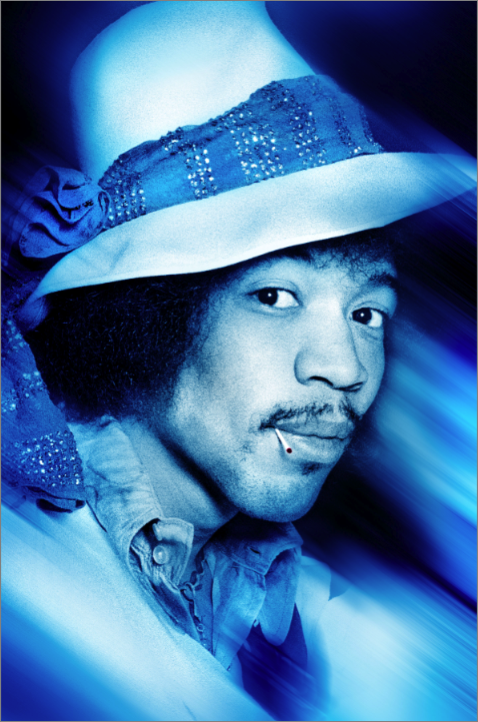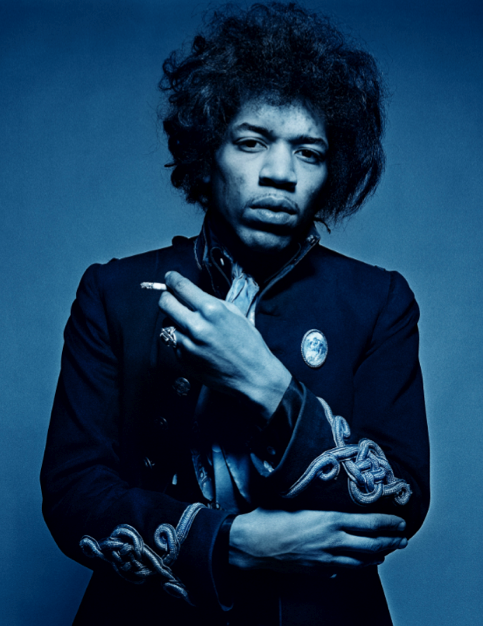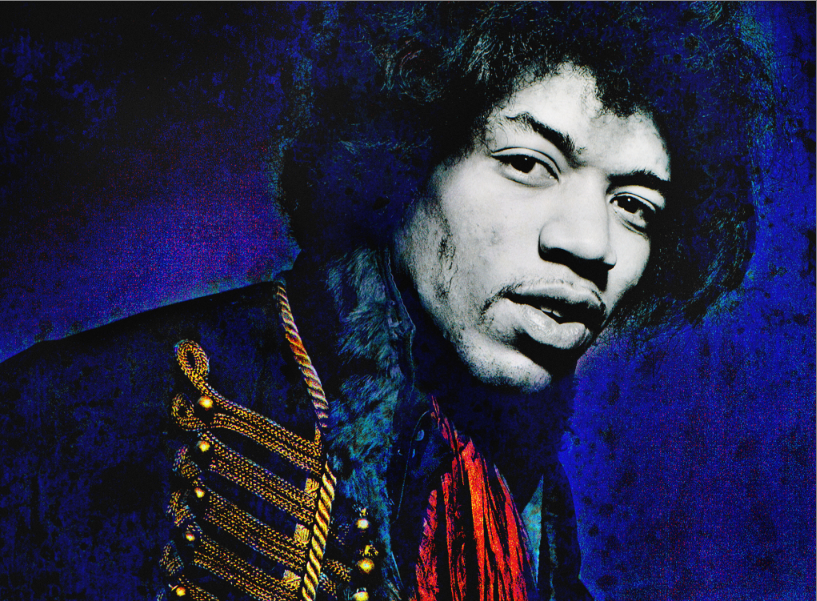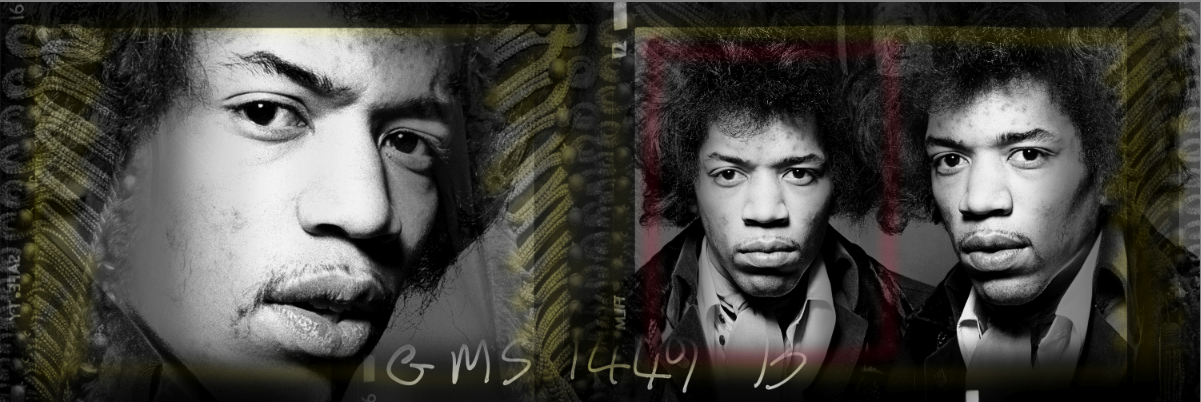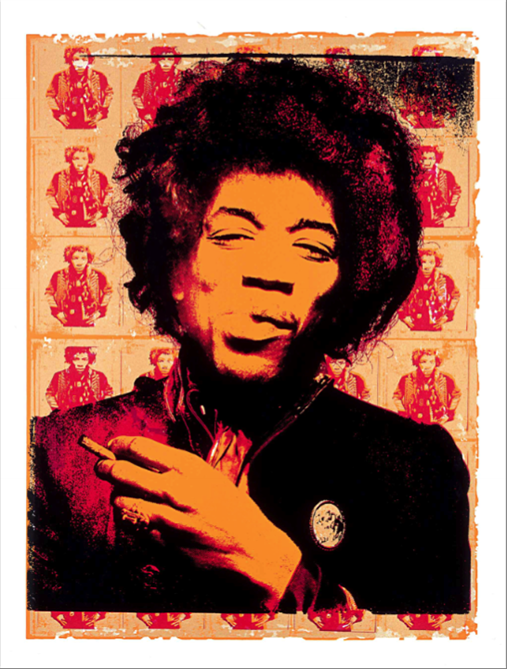THE TREASURY
Gered Mankowitz | Jimi Hendrix
Our lockdown project
At the start of the pandemic, we began work on a special project.
Our aim was to create the ultimate collectible—something designed for the completist collector, built around a key session by an acclaimed photographer.
There were no rules to follow. We started with a blank sheet of paper and let our imaginations run. Cost was not going to be a restricting factor. We were in pursuit of excellence, and the dream of creating a body of work that would give its discerning owner something elusive—pure pleasure. Why settle for less?
The Treasury is a very special collection consisting of photographs, contact sheets and books, all housed in a beautiful bespoke cabinet. The subject—the complete Jimi Hendrix archives of Gered Mankowitz—contains the most important Hendrix studio sessions by one of the masters of the music genre.
At its heart, The Treasury is a celebration of the portrait miniature—an exquisite and finely detailed small-format artwork. It is not the result of market research or of focus groups. It exists purely for its own sake, and because it should. There has never been anything quite like it.
We hope you enjoy it.
The Mason’s Yard Studio Sessions, 1967
Gered Mankowitz photographed Jimi Hendrix twice in 1967–in February and March–in his Mason’s Yard studio in central London. On the first shoot, on the very last frame of the first roll, Gered took the portrait that would become the most important photograph of his entire career and possibly the most famous studio portrait of Jimi ever taken.
It’s a portrait of a tightly framed Jimi with hands on hips, taken from a slightly elevated position to emphasize Jimi’s head, the width of his shoulders and his slim hips. Here’s Gered: “It is extraordinary to look back and realize that this portrait was the only shot I did of Jimi by himself on this first roll. I must have either felt very confident that I got it, or was so stupid that I didn’t realize what had just happened. Either way, it was captured, and would go on to have a life of its own many years later.”
‘Jimi Classic’ is, well, a classic, but to focus on it in isolation is to ignore the incredibly rich seam of work that makes up Gered Mankowitz’ Jimi Hendrix archive.
“When he arrived in the studio, it wasn’t dressing up. That was how he looked. He arrived with the military jacket on, a cloak, a funny little canvas hold-all bag, and a couple of shirts. They weren’t ironed or folded; they were just thrown into a bag. It wasn’t like a stage uniform. It was what he wore. They were day-to-day clothes; he looked like that all the time. And that was great. He looked the part.” Gered Mankowitz
Gered continues: “After completing the first roll, I decided the white background wasn’t the most appropriate. For the second roll, I moved over to the “thunder grey” background, which I felt imparted a more serious and moody atmosphere. It was against this background that I continued photographing Jimi by himself, including the “Smoking” series of portraits. These have become almost as famous as “Classic.”
“Jimi had a great smile, and we all laughed a lot throughout the session. Although nobody was that interested in seeing him grin back in ’67, his smile is lovely to look at now and the photographs of him seeming so happy help paint a picture of what he was really like at that moment in time.” Gered Mankowitz
“At that time, Jimi hadn’t consolidated any sort of success, although we all thought he was absolutely phenomenal and extraordinary-looking. Although he was wild and extrovert on stage, off stage he was rather sweet and modest, and funny in a quiet and self-effacing way. He was a very charming, polite and laid-back person to be with.” – Gered Mankowitz
We continued shooting for a while, but before long their roadie came back to collect them and whisk them down to the South Coast for a gig later that evening. The next day, I delivered the material to Chas Chandler and he seemed pleased, ordering a load of prints, which kept me busy in the darkroom for the next couple of days. Chas’s office followed up with a call about six weeks later, asking to do a second shoot with the band as soon as possible.
Frankly, I was a bit puzzled as to why Chas needed new photos so soon after the first session, so I wandered over to his office to find out what was going on. To my great relief, he explained that Noel and Mitch had styled their hair to emulate Jimi’s “Afro,” and consequently, all the group shots we had just done were now out of date! Chas and I booked the follow-up session, and I returned to the studio both relieved and delighted that I was to shoot the Experience again.
When the band arrived in Mason’s Yard for the second shoot, it was obvious that they’d undergone a lot of changes, and not only with respect to their hair. They were more of a unit—much more comfortable with each other—and projected a level of confidence that clearly had been missing just a few weeks prior. The shared hairstyle gave them a more coordinated look, and Mitch and Noel had improved their wardrobes a bit, probably in an attempt to emulate Jimi’s more daring attire. As if to emphasize the group’s growing cohesiveness, Chas said that he didn’t need any more solo shots of Jimi, so I concentrated on photographing all three of the band mates together.
New Techniques
“I had decided not to shoot any colour for the two sessions as I believed that black and white would impart a seriousness of purpose to the portraits and would give Jimi more dignity and gravitas. It was a decision that I came to regret over the following years, but one that we all felt comfortable with at the time. With the help of computer technology, however, I have been able to make efforts to correct this decision, and to breathe new life into the portraiture.” Gered Mankowitz
Initially, I used digital imaging as a post-production tool in my advertising work but by the mid-’90s realized that I could also use it to introduce color to my black-and-white archival material. I began to experiment. A few years later, I produced a set of CD covers using these new techniques for a series of Jimi Hendrix releases in Germany. They were very well received and led to various other projects in a similar vein. Finally, I was able to create color images of Jimi based on my memories of those two sessions in 1967.
As interest in my Jimi Hendrix archive increased, I began to create new colorized versions of my images for exhibitions and other projects, and have continued developing this exciting form of expression into new and unique presentations of my archive.

